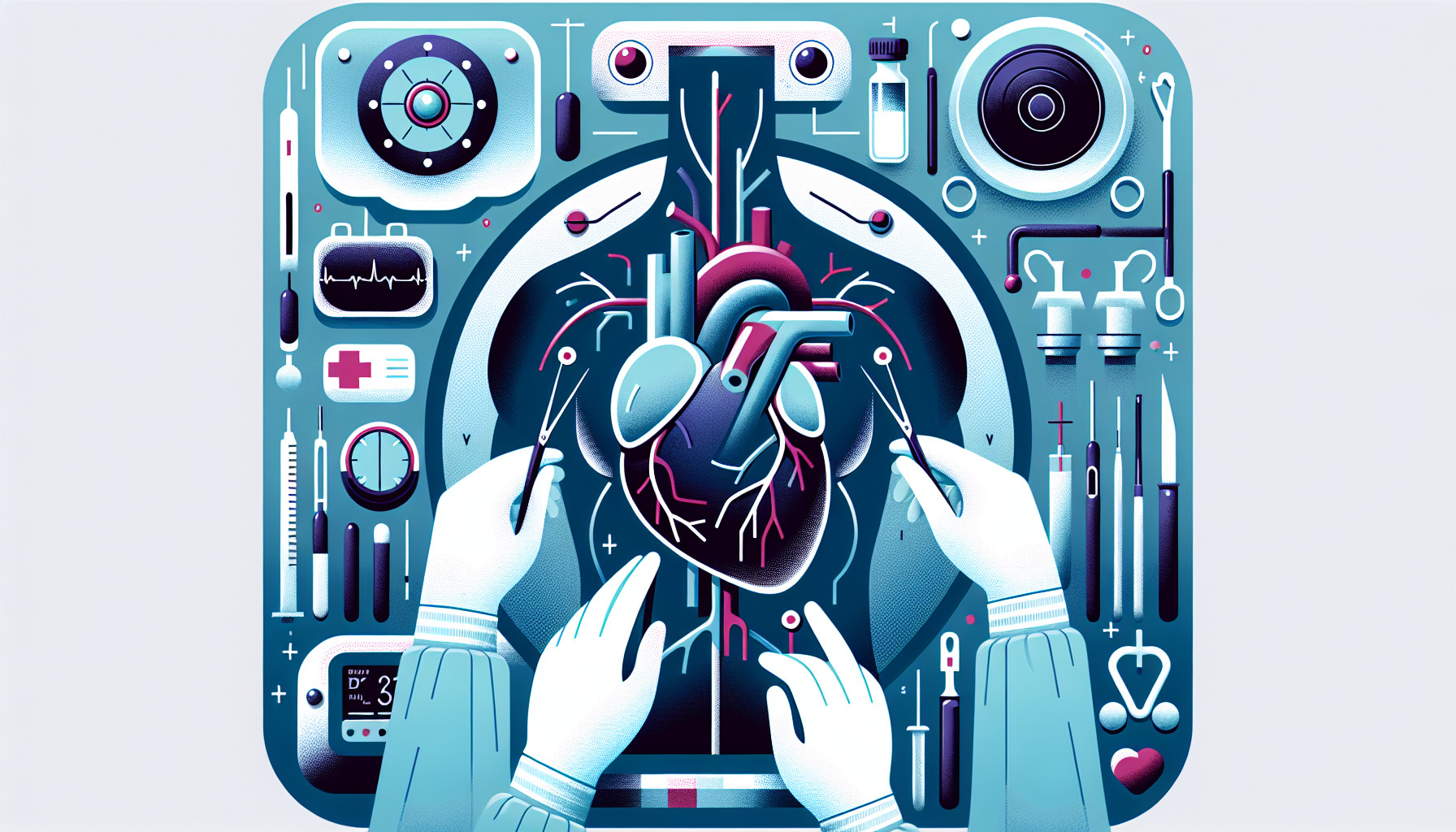Our Summary
This research paper is a review of studies looking at ways to prepare patients for coronary artery bypass surgery. This preparation, or “prehabilitation,” is meant to physically and mentally prepare patients for the stress of surgery, and help them to recover quicker and with fewer complications after the operation.
The researchers looked at studies that included adults waiting for bypass surgery at home, and focused on different strategies to improve these patients’ physical and psychological health before surgery.
They found 67 relevant studies, which included over 28,000 participants. These studies highlighted a range of different preparation strategies. For instance, some studies looked at multimodal interventions, which might include a combination of exercise, diet, and medical treatment. Others focused on psychological interventions, like counselling or stress management. Some studies looked at the benefits of physical training, education about the surgery and recovery process, or improving oral health.
The researchers concluded that these prehabilitation strategies can be useful in preparing patients for surgery. However, they also pointed out that most of the existing evidence comes from small studies, and more robust clinical trials are needed to identify the best strategies in terms of patient selection, design of the intervention, adherence and duration. They also suggested more research into the cost-effectiveness of these interventions, and whether patients find them meaningful and appropriate.
FAQs
- What is the purpose of “prehabilitation” for patients awaiting coronary artery bypass surgery?
- What types of prehabilitation strategies have been studied for preparing patients for coronary artery bypass surgery?
- What further research do the researchers suggest is necessary in the field of prehabilitation for coronary artery bypass surgery?
Doctor’s Tip
In terms of a helpful tip a doctor might give a patient about coronary artery bypass surgery, they might recommend engaging in prehabilitation strategies to improve physical and mental health before the surgery. This could include things like exercise, dietary improvements, stress management techniques, and education about the surgery and recovery process. By preparing yourself physically and mentally before the surgery, you may be able to recover quicker and with fewer complications afterwards. It’s important to discuss these strategies with your healthcare team to create a personalized plan that works best for you.
Suitable For
Overall, patients who are recommended for coronary artery bypass surgery are those who have severe blockages in their coronary arteries that cannot be treated with medication or less invasive procedures like angioplasty. These patients typically have symptoms such as chest pain (angina) or shortness of breath, and are at risk for serious complications like heart attack or heart failure if left untreated.
In addition, patients who are recommended for bypass surgery are often those who have multiple blockages in their coronary arteries, or blockages in critical areas that supply blood to a large portion of the heart muscle. These patients may have a higher risk of complications during or after surgery, but may also benefit the most from the procedure in terms of improving their quality of life and reducing their risk of future heart problems.
Overall, the decision to recommend coronary artery bypass surgery is made on a case-by-case basis, taking into account the patient’s overall health, the severity and location of their blockages, their symptoms, and their risk factors for heart disease. Patients who are recommended for bypass surgery may also be considered for prehabilitation strategies to help improve their physical and mental health before the operation.
Timeline
Before coronary artery bypass surgery, a patient typically undergoes a series of tests and evaluations to assess their overall health and determine the need for surgery. This may include blood tests, imaging tests, and a physical exam. The patient may also be advised to make lifestyle changes, such as quitting smoking or changing their diet, to improve their overall health before surgery.
After the surgery, the patient will typically spend some time in the intensive care unit to monitor their recovery. They will then be moved to a regular hospital room, where they will continue to be monitored and receive care to help them recover. Physical therapy may be recommended to help the patient regain strength and mobility. The patient will also be given instructions on how to care for themselves at home and when to follow up with their healthcare provider.
Overall, the timeline for a patient before and after coronary artery bypass surgery involves a period of preparation, the surgery itself, and a period of recovery and rehabilitation. Prehabilitation strategies can help improve outcomes and make the recovery process smoother for patients undergoing this procedure.
What to Ask Your Doctor
- What are the potential benefits of prehabilitation before coronary artery bypass surgery?
- What specific prehabilitation strategies do you recommend for me based on my individual health situation?
- How can I best prepare myself physically and mentally for the stress of surgery?
- Are there any specific exercises or dietary changes I should make before surgery?
- Will prehabilitation help me recover quicker and with fewer complications after surgery?
- How long before surgery should I start prehabilitation?
- Are there any risks or potential drawbacks to prehabilitation that I should be aware of?
- Can you provide me with more information about the different prehabilitation strategies that have been studied and their effectiveness?
- Will I have access to support or resources to help me with prehabilitation, such as counseling or education about the surgery and recovery process?
- How can I ensure that I am adhering to the prehabilitation plan and getting the most benefit from it?
Reference
Authors: Olsen DB, Pedersen PU, Noergaard MW. Journal: JBI Evid Synth. 2023 Jun 1;21(6):1190-1242. doi: 10.11124/JBIES-22-00265. PMID: 36929938
